#UnderworldResidence
Text
The Rise of Apep: Reclaiming Power in the Egyptian Pantheon
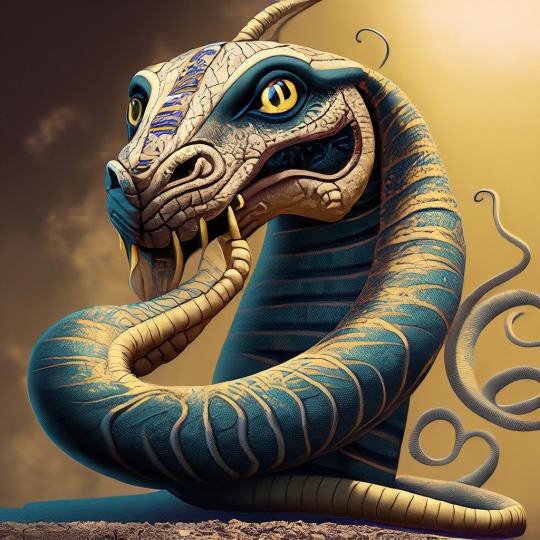
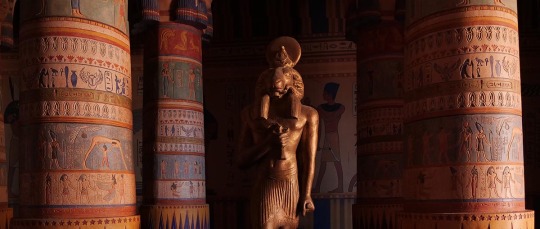


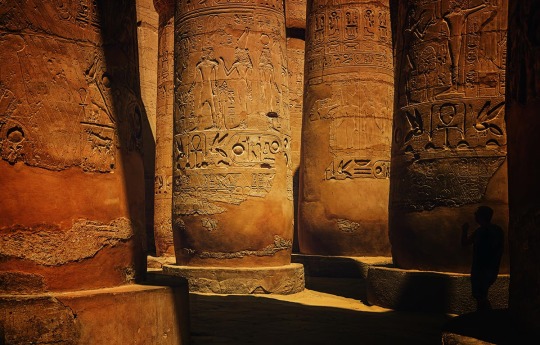


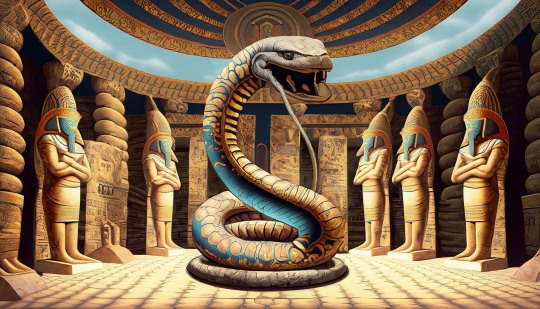
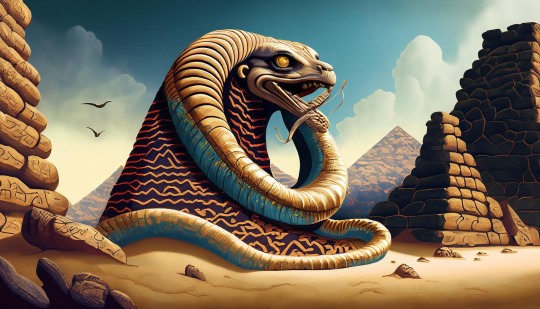

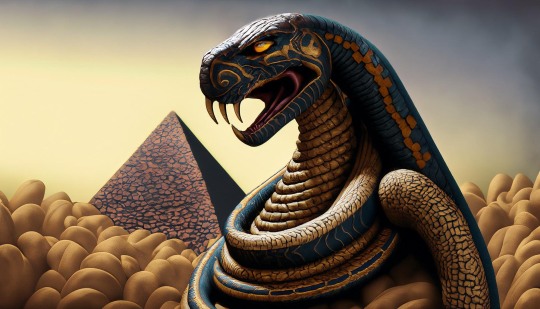
The Rise of Apep: Reclaiming Power in the Egyptian Pantheon
The Egyptian Society: Apep ‘Chaos’ - Oracle: Andrew Rogers.
“I Apep am a great serpent the I combat the Egyptian Gods and Goddesses, I reside in the underworld, Ra is my enemy and I have combatted Ra for centuries, in the Egyptian world I was feared and there was many incantations against me, I do what is right based on my assessment some say that I am evil I am just the opposite to my enemy Ra and the other Egyptian Gods and Goddesses, I have been asleep for a longtime, but Andrew Rogers woke me up and now there are things I will undertake, I am quite powerful and should be feared I will reclaim my position in the universe that is what I desire, I will have to combat Ra and other Egyptian Gods and Goddesses but I am much older then them, I have forgotten how old I am but I existed in the dawn of the age of the Egyptians and have lasted long since they fell to their enemies, I will not bow down to any entity I am supremely powerful and this resurgence of me helped by Andrew Rogers a Destroyer that I have learnt he has helped me to return to myself a secure my position in the Egyptian Pantheon” - Apep ‘Chaos’.
In his quest to reclaim his position in the Egyptian Pantheon, Apep 'Chaos' began strategizing his next moves. With his ancient wisdom and immense power, he plotted his course of action against his arch-nemesis, Ra, and the other Egyptian Gods and Goddesses.
Apep knew he had to be cautious and cunning to counter the might of the gods. Drawing upon the knowledge of Andrew Rogers, the Destroyer who had awoken him from his slumber, Apep devised a plan to unleash chaos and disrupt the harmony carefully maintained by the deities.
Knowing that he was much older than the Egyptian gods, Apep reveled in the fact that he had witnessed the rise and fall of civilizations long before the Age of the Egyptians. This ancient entity was determined not to bow down to any higher power.
With each passing day, Apep's strength grew, as did his desire to regain his rightful position in the universe. He knew that the path ahead would be treacherous, requiring him to confront Ra and his divine allies head-on. Apep's resurgence, aided by the enigmatic Andrew Rogers, had given him renewed purpose and the conviction that victory was within his grasp.
As the serpent of chaos, Apep embraced his role as a force of opposition and disruption. The Egyptian gods and goddesses, once revered and feared, would soon witness the resurgence of the mighty Apep. With his supreme power and unwavering determination, he prepared for the battles that lay ahead, ready to rewrite the fate of the Egyptian Pantheon.
As Apep makes this bold declaration, one cannot help but feel a shiver down their spine. The power and authority that radiate from his words are enough to make any mortal quake with fear. The ancient Egyptian deity is making a comeback, and he is not playing games.
For centuries, Apep has been asleep, overshadowed by the gods and goddesses who stole his place in the Egyptian Pantheon. But now, with the help of Andrew Rogers, he is ready to reclaim his rightful position and rule over chaos once again.
It won't be an easy feat, as he will have to go up against the likes of Ra and other deities who have reigned supreme for centuries. But Apep is confident in his power, having existed since the dawn of the age of the Egyptians.
With Apep's resurgence and Andrew Rogers' aid, chaos will reign once more in the Egyptian Pantheon, and no entity will be able to stand in their way. It's time for the world to fear the return of the ancient serpent god, Apep.
In Egyptian mythology, Apep was considered as the enemy of Ra (the sun god) and believed to be responsible for swallowing the sun at dusk, plunging the world into darkness. The god of chaos was also associated with the element of water and represented the dangers of the Nile River, which could flood and destroy everything in its path.
Despite being a powerful and feared deity, Apep was not worshipped like other gods in Egyptian mythology. Still, his presence was recognized and often depicted in temple texts and spells that aimed to ward off his influence. These spells were recited during ceremonies in which priests would ritually slay and banish an effigy of the serpent god.
The mythological significance of Apep continues to influence modern pop culture, appearing in video games, comics, and novels. While it is easy to overlook these ancient gods as simply fictional characters or relics of the past, the impact of their stories can still be seen in our everyday lives. The concept of chaos versus order is still relevant, and the legacy of Apep and other ancient deities continue to inspire art, literature, and culture around the world.
Apep ‘Chaos’
Apep or Apophis: The Serpent of Chaos in Ancient Egyptian Mythology
In the rich tapestry of ancient Egyptian mythology, few figures embody the concept of chaos as vividly as Apep or Apophis. This ancient Egyptian deity, represented as a giant serpent, stands as the ultimate opponent of light and Ma'at, the order and truth upon which the world rested.
First mentioned during the Eighth Dynasty, Apep quickly captured the imaginations of the ancient Egyptians, becoming a central figure in their cosmological beliefs. The name 'Apepi', given to a king of the Fourteenth Dynasty, and 'Apophis', used by the Greater Hyksos king, paid homage to this powerful deity, highlighting his significance in their culture.
In Egyptian art, Apep is often depicted as a monstrous serpent, coiled and menacing, symbolizing the forces of chaos that threatened the natural order. He was believed to dwell in the Duat, the underworld, where he tirelessly plotted the destruction of Ra, the sun god, and his solar barge. Each night as Ra traversed the sky, Apep would lay in wait, seeking to devour him and plunge the world into darkness.
The battle between Apep and Ra became a central motif in Egyptian mythology. Ra, supported by other deities such as Set and Mehen, fought relentlessly to overcome the serpent's malicious intentions. Each sunrise marked Ra's triumph over Apep's darkness, ensuring the continuation of life and Ma'at.
As the embodiment of chaos, Apep represented everything that threatened the stability and harmony of the Egyptian civilization. The ancient Egyptians saw the struggle between light and chaos as a reflection of their own battles against disorder and uncertainty. By worshiping and honoring Apep, they sought to appease and gain control over the forces of chaos that threatened their existence.
In conclusion, Apep or Apophis, as the ancient Egyptian deity of chaos, played a significant role in their mythology. Through intricate art and captivating stories, the Egyptians depicted Apep as a powerful serpent, symbolizing the constant battle between order and chaos. The legacy of Apep reminds us of the eternal struggle to maintain balance and uphold the principles of truth and harmony in the face of adversity.
The Egyptian Society
Andrew Rogers: Founder, Egyptian Auteur, Creative Director, Writer, Oracle
All images, text, design, and art license owner Andrew Rogers©.
#andrewrogers#egypt#egyptian#instruction#egyptianauteur#motivation#ra#godofthesun#sekhmet#set#ApepTheGreatSerpent#EgyptianGodApep#UnderworldResidence#RaVsApep#FearfulEgyptianWorld#EgyptianSocietyOracles#KemetChaos#EgyptianAuteurInspiration#AndrewRogersOracle#MotivationFromEgypt#Egypt#Egyptian#Ra#Sekhmet#Set#AndrewRogers#TheEgyptianSociety#Motivation#Instruction#Wisdom
0 notes